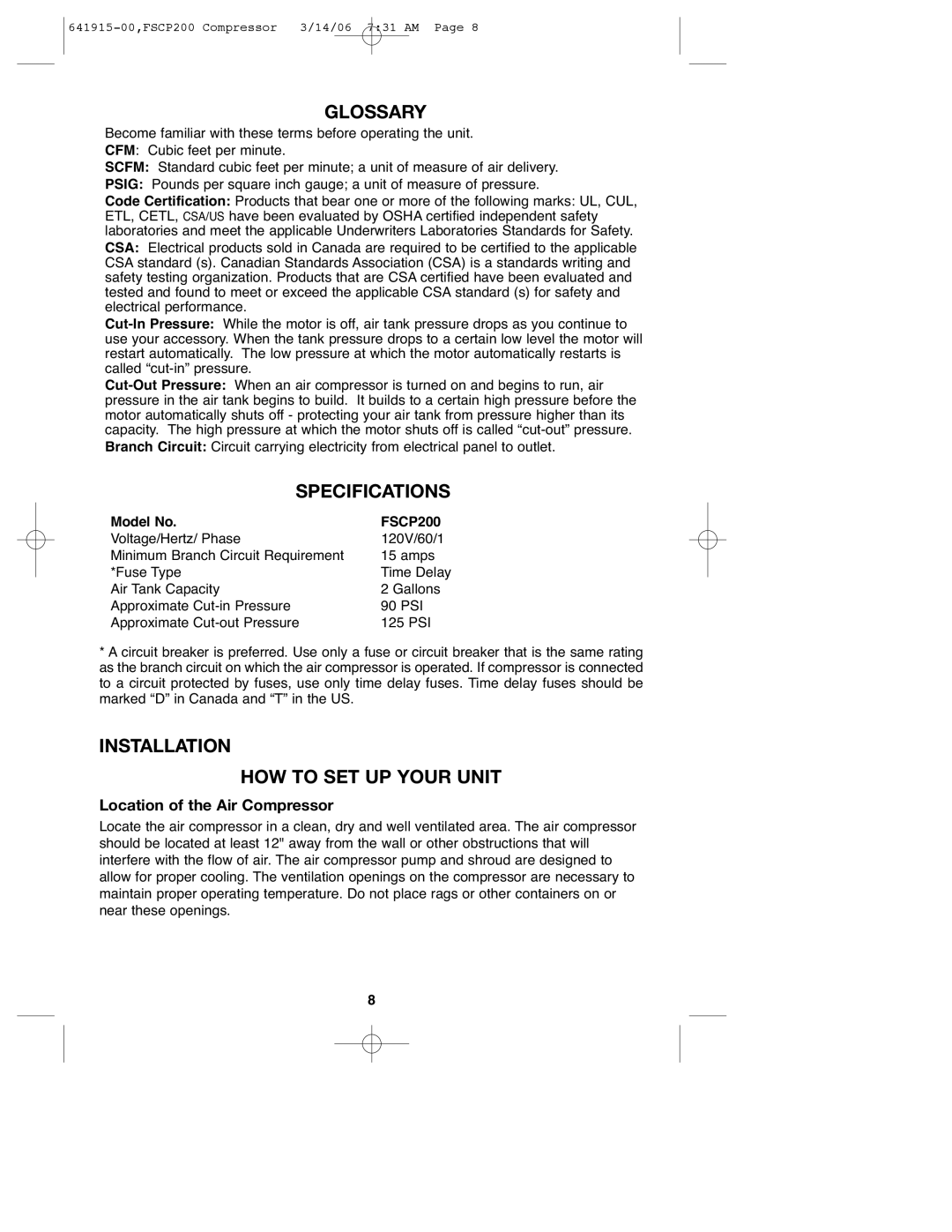
3/14/06 7:31 AM Page 8 |
GLOSSARY
Become familiar with these terms before operating the unit. CFM: Cubic feet per minute.
SCFM: Standard cubic feet per minute; a unit of measure of air delivery.
PSIG: Pounds per square inch gauge; a unit of measure of pressure.
Code Certification: Products that bear one or more of the following marks: UL, CUL, ETL, CETL, CSA/US have been evaluated by OSHA certified independent safety laboratories and meet the applicable Underwriters Laboratories Standards for Safety. CSA: Electrical products sold in Canada are required to be certified to the applicable CSA standard (s). Canadian Standards Association (CSA) is a standards writing and safety testing organization. Products that are CSA certified have been evaluated and tested and found to meet or exceed the applicable CSA standard (s) for safety and electrical performance.
SPECIFICATIONS
Model No. | FSCP200 |
Voltage/Hertz/ Phase | 120V/60/1 |
Minimum Branch Circuit Requirement | 15 amps |
*Fuse Type | Time Delay |
Air Tank Capacity | 2 Gallons |
Approximate | 90 PSI |
Approximate | 125 PSI |
*A circuit breaker is preferred. Use only a fuse or circuit breaker that is the same rating as the branch circuit on which the air compressor is operated. If compressor is connected to a circuit protected by fuses, use only time delay fuses. Time delay fuses should be marked “D” in Canada and “T” in the US.
INSTALLATION
HOW TO SET UP YOUR UNIT
Location of the Air Compressor
Locate the air compressor in a clean, dry and well ventilated area. The air compressor should be located at least 12" away from the wall or other obstructions that will interfere with the flow of air. The air compressor pump and shroud are designed to allow for proper cooling. The ventilation openings on the compressor are necessary to maintain proper operating temperature. Do not place rags or other containers on or near these openings.
8
